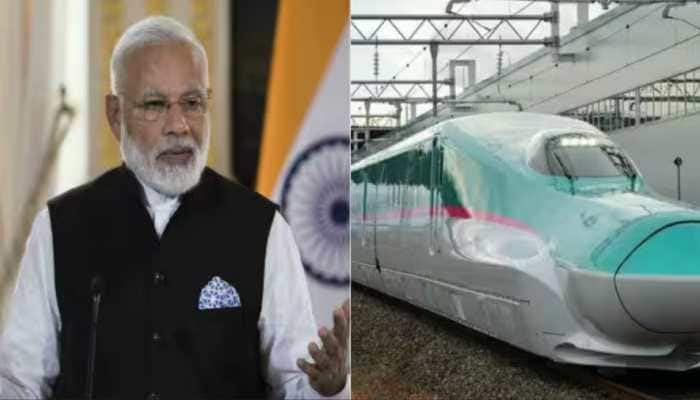India’s 8-Month Fiscal Deficit At 52.5 Per Cent Of Full Year Target For 2024-25
Total government expenditure for the eight months was Rs 27.41lakh crore which constitutes 57 per cent of the annual target fixed in the Union Budget.
Trending Photos
) File Photo
File Photo New Delhi: India's fiscal deficit for the first 8 months from April to November of the current financial year is estimated at Rs 8.47 lakh crore which works out to 52.5 per cent of the estimate for the financial year, according to official data released on Tuesday. This reflects a strong macroeconomic financial position as the fiscal deficit is well under control with the government sticking to the consolidation path.
Net tax receipts for the first eight months of the current financial year were at Rs 14.43 lakh crore, or 56 per cent of the annual target, up from Rs 14.36 lakh crore for the same period last year, the data showed.
Total government expenditure for the eight months was Rs 27.41lakh crore which constitutes 57 per cent of the annual target fixed in the Union Budget. The government spent Rs 26.52 lakh crore in the same period last year.
The government aims to bring down the fiscal deficit to 4.9 per cent of gross domestic product (GDP) in the current financial year from 5.6 per cent in 2023-24. The government aims to contain the fiscal deficit at Rs 16.13 lakh crore during the current fiscal.
India’s net direct tax collections, comprising corporate tax and personal income tax, shot up by a robust 15.4 per cent to Rs 12.1 lakh crore, from April 1 to November 10 during the current financial year, according to the latest figures released by the Central Board of Direct Taxes (CBDT).
Similarly, there has been a robust growth in GST collections on the back of rising economic activity. The buoyancy in tax collections places more funds in the government’s coffers to undertake investments in large infrastructure projects to spur economic growth and take up welfare schemes for the poor. It also helps to keep the fiscal deficit in check and strengthens the macroeconomic fundamentals of the economy.
A lower fiscal deficit means the government has to borrow less which leaves more money in the banking system for big companies to borrow and invest. This, in turn, leads to a higher economic growth rate and the creation of more jobs. Besides, a low fiscal deficit keeps the inflation rate in check which strengthens the fundamentals of the economy and ensures growth with stability.
Stay informed on all the latest news, real-time breaking news updates, and follow all the important headlines in india news and world News on Zee News.
Live Tv







)
)
)
)
)
)
)
)
)
)
